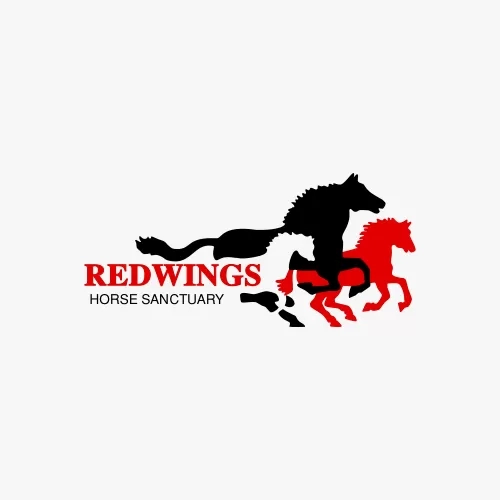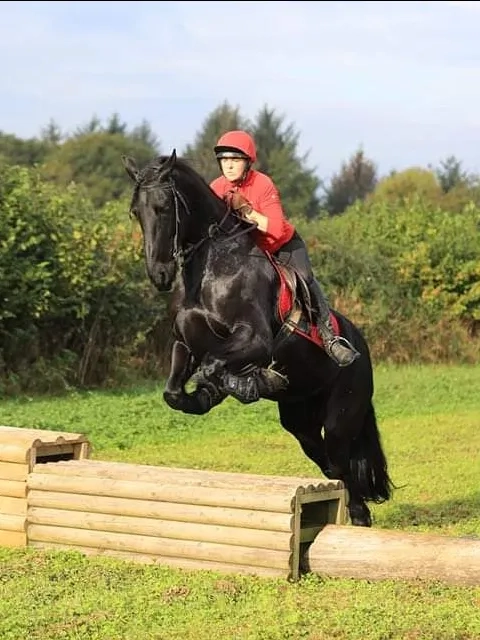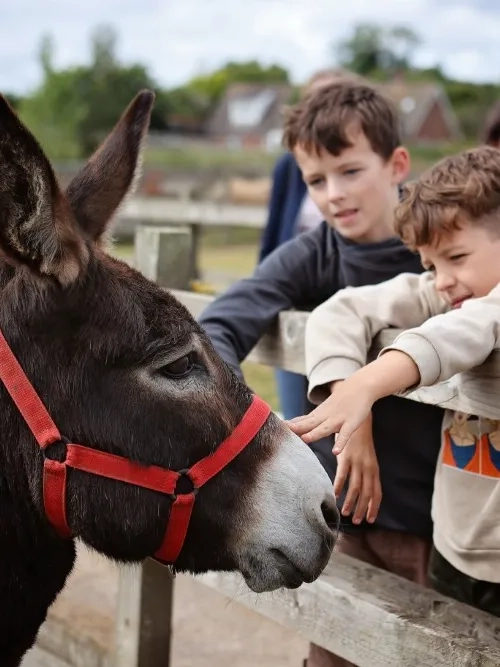08 February 2021

Beth Cooper, from our Welfare team, takes us through the various roles this life-saving team plays at Redwings and in helping horses enjoy happy and healthy lives beyond our paddock fences.
When most people think of a welfare charity, they think of big rescues, emaciated animals and people in uniforms saving lives. While this is certainly an important part of welfare, it’s only one part of a truly amazing team here at Redwings.
In this month’s blog, I’d like to take some time to dissect our team, and tell you about all the things we get up to, that don’t always make it into the headlines!
At Redwings, we’re not just “The Welfare Department”, but actually the “Welfare and Behaviour Department”. Not only are we responsible for looking out for ponies out in the big wide world, but we’re also responsible for a lot of the training and handling that goes on with our own herds. We also play a huge role in maintaining the biosecurity of our herds and farms, and oversee the initial care that horses receive when they first arrive.
Let’s take you through a quick rundown of how we function as a team, and our role within Redwings:
THE OFFICE
The Welfare office is one of the main “hubs” the team operates from. Here we receive and answer reports, vet notes and witness statements are written, and all sorts of other important admin tasks go on. We also manage the identification documents for all our horses – this means we coordinate microchips and passports for over 1,500 equines!
When our phone operators receive a report, it is triaged based on the information we’re given. The people who operate our phones are friendly and professional, and have been given extensive training about all kinds of different equine management methods and welfare emergency scenarios. They’re able to ascertain whether there is a genuine problem that needs addressing, or if the report can be handled with some advice and discussion with the caller.
If a report sounds like it needs further investigation, our office team hands it over to…

THE FIELD TEAM
Redwings has field officers who can respond to three different areas in the UK: mainly East Anglia and the home counties, and some coverage of Warwickshire and Oxfordshire. With well over 50 years of experience combined, our dedicated field officers are incredibly knowledgeable and well-connected, and know just what to do when they arrive at a scene. While we rescue equines in all parts of the UK, these areas are where we can assess and investigate horses ourselves.
The action taken by our field officers depends entirely on the welfare of the horse. Animal welfare pertains to how an animal is coping with its environment or management. Sometimes horses are kept in less-than-ideal environments, or kept using management methods outside the norm, but can be perfectly healthy within themselves. For others, their situation may be having an impact on their health or wellbeing.
Sometimes improving the horse’s welfare involves our field officers working with the owner to help the horse in the home. This can be in the form of advice or support from the Welfare team, but intervention can be escalated dependent on the horse’s ongoing condition. When our field officers leave a card on a visit, it’s so they can make contact with the owner to discuss the horse’s needs, and to see if there is advice or support we can offer those in need.
There are occasions where our field officers feel that the horse needs urgent veterinary care. Providing care for their horse is the responsibility of the owner, but where an owner cannot be found, or an owner is unwilling or unable to arrange veterinary treatment, welfare organisations can take action. Working in conjunction with the RSPCA, the police and vets, the animal might be seized in order to take the horse to somewhere it can receive the care it needs, and monitor it closely. For most of Redwings’ cases, the people delivering this potentially life-saving care are…

THE VETS
Redwings is extremely lucky in that we have two veterinary teams; one vet team is responsible for most of our sanctuary herds, and the Welfare vet team. Our welfare vets are able to go out and assess case animals, and provide expert testimony in animal cruelty cases if needed. They also treat our herds of horses which have special handling needs.
Our welfare vets have lots of experience with horses that come into the sanctuary with all sorts of welfare issues. Underweight and overweight equines, to liver disease, to all kinds of injuries and illnesses. Sometimes they have to make the sad decision to have a horse put to sleep, but it is only ever done in the best interests of the horse, and after having explored all other options.
When the welfare vets are asked to assist with a welfare case, if the equine requires further veterinary attention or has been seized under the Animal Welfare Act, the equine is taken to the…

THE RECEPTION CENTRE
In order to maintain the biosecurity of our resident herds, and provide a stable, quiet environment for horses to begin their recovery, Redwings has a specialist centre where we welcome new intakes. Here they can receive further treatment from our vets, and the best of care from our extremely dedicated Reception team.
The first few weeks of a horse’s time at Redwings is usually spent here. The horses are given a thorough assessment by our welfare vets including being tested for strangles. This is to prevent the spread of strangles and other diseases to our farms, and ensure that any infected horses can receive the care and treatment they need.
Strangles testing and treatment is an area of Redwings’ expertise – our Stamp Out Strangles campaign supports horse owners and yard managers in preventing outbreaks - and the Reception Centre plays a fundamental part of keeping the Sanctuary strangles free. Despite bringing in hundreds of horses who have tested positive, there has only been one outbreak in the Sanctuary in 30 years.
During their stay, the Reception team can also get to know our new arrivals. They learn all about their behaviours, their likes and dislikes, and help to prepare the other farms for when they move on. For our particularly feral or scared ponies who need extra handling, they might move on to…

THE BEHAVIOUR CENTRE
This special yard is where the horses, ponies and donkeys (and even a hinny and a mule) receive specialist handling and rehabilitation. The horses you see when you visit our centres are mostly very cuddly and friendly, but the less confident ponies need somewhere quieter to live. At the Behaviour Centre, they’re given all the freedom and safety they need, along with gentle behaviour training programs to help make it safe to handle them for routine care treatments.
Our wonderful Behaviour team are incredibly attentive and empathetic to our most vulnerable herds. They have years of extensive experience with a wide range of horses and ponies, and have helped developed the handling methods used throughout the entire of Redwings! Some horses which move through the Behaviour Centre might go on to our other farms, or even be rehomed, but some will have a safe home there forever.
And leading this whole machine is…

THE BOSS
The Head of Welfare and Behaviour has featured quite a bit in Redwings’ publications, but it feels apt to introduce him again now. Nic de Brauwere started at Redwings in 1991 as a veterinary surgeon. He has played an essential role in the way Redwings has developed and grown, and our values when it comes to being a horse sanctuary. He’s also had a huge influence on the equine industry as a whole as Chairman of the National Equine Welfare Council (NEWC) and the Animal Welfare Network Wales (AWNW).
Thanks to Nic and his team, we’ve established connections with welfare organisations and horse communities up and down the country. We’ve helped improve welfare standards at horse fairs like Appleby, and we’ve improved the welfare of horses on common lands and moors, like Bodmin in Cornwall and Gelligaer in Wales. When we’re part of large rescues, we’re usually there to provide veterinary support and handling for equines which are feral, or terrified of people. Because of our experience and our focus as an organisation, much of the industry relies on us to provide these skills in round-ups and rescues up and down the country.

Redwings Press Office
Find out more about Redwings Press Office



